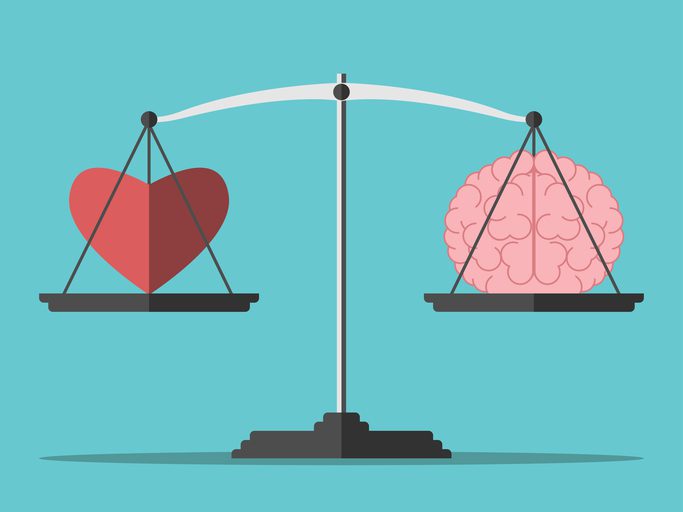
I often ask audiences the question, “What is the opposite of stress?” Most people offer that it’s “peace” or “calm” or “tranquillity,” or something along those lines. It’s natural to think this, because when we feel stressed, we naturally want to feel calm instead.
But peace, calm or tranquillity are not actually the opposite of stress. They represent the absence of stress. We want to feel calm rather than stressed by having the stress removed.
Physiologically speaking, the opposite of stress is actually kindness. Let me explain.
Stress starts as a feeling, which then brings about physiological effects. It is largely independent of a situation that causes it. For example, two people can be in the same situation – one of them feels stressed while the other feels calm. You and your friend might be sitting together about to watch a talk on Zoom when the internet connection goes down. You feel so stressed because you really wanted to see the talk, but your friend calmly remarks, “It’s OK, we’ll watch the recording.” I think most of us can recognise similar situations in our own lives.
But because of how you feel, you will now have stress hormones circulating in your brain and body (like adrenalin and cortisol). Yet your friend who feels calm won’t. The situation hasn’t got much to do with how much stress hormones each of you produce has. It’s how each of you feels that determines your stress hormone levels.
Feelings of stress produce stress hormones.
In a similar way, feelings induced by kindness generate kindness hormones. That’s what I call them to draw a parallel with stress in that they are produced because of how kindness feels. The main one is oxytocin, the reproductive hormone that also goes by such affectionate names as the love drug, the hugging hormone, or the cuddle chemical.
And thus, an act of kindness itself doesn’t produce kindness hormones. It’s how kindness feels that produces them.
Crucially, kindness and kindness hormones bring about opposite effects from stress and stress hormones. For example:
-Stress increases blood pressure, but kindness hormones reduce blood pressure.
-While stress can weaken the immune system, kindness can elevate it (known as the Mother Theresa effect).
-Stress is linked with depression while kindness is protective against it.
-Stress can make a person feel sad but kindness boosts happiness.
-Stress accelerates ageing processes, kindness can slow them down.
-Cumulative stress can cause cardiovascular disease while kindness hormones are cardioprotective (they protect the cardiovascular system).
-Stress increases sympathetic activity (fight or flight), but kindness reduces it and increases parasympathetic activity instead (rest and digest).
-Stress and kindness can’t coexist.
They are mutually exclusive. It’s either one or the other.
In a simple study, researchers sent volunteers a text message every evening and asked them to give two numbers. The first was a score, like 0-10, for the average level of stress they felt that day, where 0 would be no stress and 10 would be highly stressed. The second number represented the approximate number of kind things they can remember saying or doing that day.
When the data was processed after a few weeks it revealed something astonishing. On the days when the kindness score was high, the stress score was low. And on days when the stress score was high, the kindness score was low. An animated plot of the data would look like a see saw. As kindness went up, stress came down.
This didn’t mean that when we’re being kind that stressful things don’t happen. Of course they do. We all know this from experience. What it really meant was that when we’re being kind, the feelings induced take some of the sting out of stressful events. So when there’s kindness going around, potentially stressful things can happen, but they just don’t feel as stressful.
So next time you feel stressed, rather than reaching for your yoga mat or meditation cushion, try kindness.
Stop for a few moments and think of some times when you experienced kindness, whether as the giver of kindness, the receiver, or even the witness to it. Remember how it felt.
Better still, find someone who needs help and offer your hand.

I love this, David, thank you for the great explanation, I shall put it into practice and watch the magic unfold!
⭐️
Thanks Sallie. Happy magic making. 🙂
Thank you David
I’ve been noticing how I feel extra sensitive to unkindness when I’m stressed and soothed by kind words and gestures. You describe the relationship so clearly
Thanks for your kind words, Jill. It’s good that you’ve had that personal experience and can see how it works for yourself.:-)
[…] Kindness is the opposite of stress […]
Wow, what an eye opener! At the start of reading this I couldn’t have disagreed more but after reading I can see you’re exactly right. I would have never made that correlation. How interesting and accurate. Really important information. Potentially life changing in some cases. Thank you for writing this.
[…] is physiologically opposite to stress. This is a topic I’ve written about in other blogs and in two of my books on kindness. It’s true in the sense that the experience of kindness – […]
[…] of the effects of kindness. It’s how kindness feels that matters. I’ve written about this in other blogs when justifying why kindness is the opposite of […]
I found this blog when while doing my research on stress. Love this and it makes absulute sense that kindness is the oposite of stress. Thank you! I alreday have and love your book Dr Hamilton.